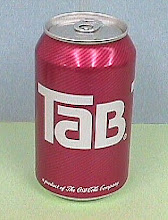This is the week we know, with increasing certainty, that we are
entering the last phase of the Trump Presidency. This doesn’t feel like a
prophecy; it feels like a simple statement of the apparent truth. I know dozens
of reporters and other investigators who have studied Donald Trump and his
business and political ties. Some have been skeptical of the idea that
President Trump himself knowingly colluded with Russian officials. It seems not
at all Trumpian to participate in a complex plan with a long-term, uncertain
payoff. Collusion is an imprecise word, but it does seem close to certain that
his son Donald, Jr., and several people who worked for him colluded with
people close to the Kremlin; it is up to prosecutors
and then the courts to figure out if this was illegal or merely deceitful. We
may have a hard time finding out what President Trump himself knew and approved.
However, I am unaware of anybody who has taken a serious look at
Trump’s business who doesn’t believe that there is a high likelihood of rampant
criminality. In Azerbaijan, he did business with a likely money
launderer for Iran’s Revolutionary Guard. In the
Republic of Georgia, he partnered with a group that was being
investigated for a possible role in the largest
known bank-fraud and money-laundering case in history. In Indonesia, his
development partner is “knee-deep in dirty
politics”; there are criminal investigations of his deals in Brazil; the F.B.I. is reportedly
looking into his daughter Ivanka’s role in the
Trump hotel in Vancouver, for which she worked with a Malaysian family that has
admitted to financial fraud. Back home, Donald, Jr., and Ivanka were investigated
for financial crimes associated with the Trump hotel in SoHo—an investigation
that was halted suspiciously. His
Taj Mahal casino received what was then the largest fine in
history for money-laundering violations.
From a New Yorker article dated April 14, 2018, read it here.
Friday morning update: Not only a small, sad operation, the entire Trump "empire" is really just an elaborate farce. From an article by Jonathan Greenberg at the Washington Post:
In May 1984, an official from the Trump Organization called to
tell me how rich Donald J. Trump was. I was reporting for the Forbes 400, the
magazine’s annual ranking of America’s richest people, for the third year. In
the previous edition, we’d valued Trump’s holdings at $200 million, only
one-fifth of what he claimed to own in our interviews. This time, his aide
urged me on the phone, I needed to understand just how loaded Trump really was.
The official was
John Barron — a name we now know as an alter ego of Trump himself. When I
recently rediscovered and listened, for first time since that year, to the
tapes I made of this and other phone calls, I was amazed that I didn’t see
through the ruse: Although Trump altered some cadences and affected a slightly
stronger New York accent, it was clearly him. “Barron” told me that Trump had
taken possession of the business he ran with his father, Fred. “Most of the
assets have been consolidated to Mr. Trump,” he said. “You have down Fred Trump
[as half owner] . . . but I think you
can really use Donald Trump now.” Trump, through this sockpuppet, was telling
me he owned “in excess of 90 percent” of his family’s business. With all the
home runs Trump was hitting in real estate, Barron told me, he should be called
a billionaire.
At the time, I
suspected that some of this was untrue. I ran Trump’s assertions to the ground,
and for many years I was proud of the fact that Forbes had called him on his
distortions and based his net worth on what I thought was solid research.
But it took decades to unwind the elaborate farce Trump had
built to project an image as one of the richest people in America. Nearly every
assertion supporting that claim was untrue. Trump wasn’t just poorer than he
said he was. Over time I have learned that he should not have been on the first
three Forbes 400 lists at all. In our first-ever list, in 1982, we included him
at $100 million, but Trump was actually worth roughly $5 million — a paltry sum
by the standards of his super-monied peers — as a spate of government reports
and books showed only much later. Read the article here.


No comments:
Post a Comment